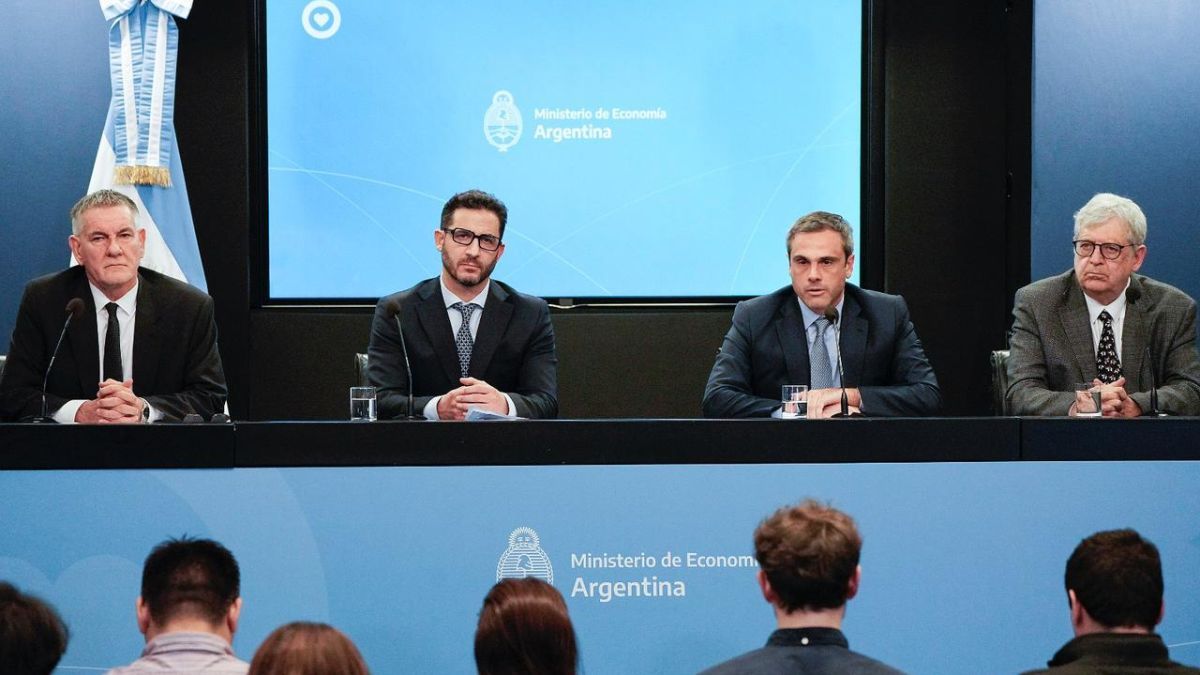Guillermo Michel, head of Customs and who heads the recently created price bargaining unitannounced the measure during a press conference in Economy. “We are renewing the price agreements and establishing increases of 5% per month for 90 days,” he said.
In addition, he announced that they will announce tax breaks for the companies. “Taking into account the variation in the exchange rate, we are aware of this variation and in order not to affect the table of Argentines and Argentines we are establishing a tax relief for companies so that they do not transfer the increase in the exchange rate to the product that citizens consume,” he added.
Accompanied by the head of the Secretary of Commerce, Matthias Tombolini, the Vice Minister of Economy, Gabriel Rubenstein, and the head of AFIP, Carlos Castagneto, Michel also referred to the new negotiating table, about which he said that he will analyze both “the perspective of foreign trade as tax and taxation of each company”.
Tombolini pointed out that, together with the negotiation unit led by Michel, they have “finished the first meetings with the most important wholesalers in our country” and added that they also held negotiations “with the largest and most representative hypermarkets in Argentina.”
Regarding how long it will take to regularize the supply situation suffered by various companies due to changes in prices, a product of the devaluation, the economist said that “the time elapsed between the announcement of the new fixed exchange rate for 90 days and the negotiations that have already They started with mass consumption companies, and they continue tomorrow, they will allow stocks to be recomposed”.
During the announcement, Tombolini He pointed out that the price programs “are one more tool” whose objective is “to address this scourge that Argentina has, which is inflation.” And he pointed out that, due to the impact that the drought had on the economy, the Government decided to develop new tools.
On the other hand, he referred to the 22% exchange rate variation established by the Central Bank after the results of the STEP. “The new exchange rate is a piece of information that does not enable abuses by companies in terms of price increases,” he said, noting that even with the new exchange rate “the variation of the last 24 months is on a par with the prices”.
“We understand that the conditions are given, just as inflation was 6% in June and 6.3% in July, try to help what has to do with August prices,” he continued. Tombolini.
In turn, Rubinstein said that “the macro scheme came out strengthened” since the exchange rate will not vary for 90 days and “measures to strengthen the fiscal situation” will be applied. In addition, he stressed that the agreement with the IMF will allow “strengthen reserves” and advanced: “There have been more liquidations in the Mercado Único y Libre de Cambios and the BCRA has been buying dollars.”
Therefore, the Vice Minister of Economy stated that “the companies comply with the price agreements” will allow “decompressing the financial markets of the dollar.” “We believe that as the days go by, the exchange situation should calm down”he affirmed and pointed out that the agreement with consumer companies will allow “prices to rise more slowly.”
It also considered that the strong rise that was seen in some items “has no foundation” because the profitability margins of the companies “are very high”.
Source: Ambito




